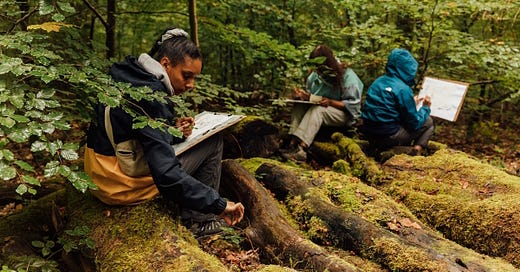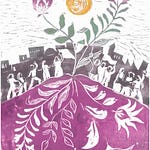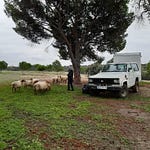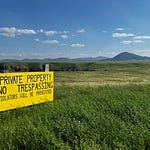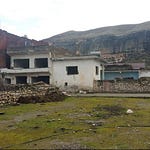Maymana Arefin is the founder of Fungi Futures, a project learning with fungi to map radical alternative futures.
Maymana began Fungi Futures in part due to inspiration from the “wood wide web” which they value as a metaphor for our interconnectedness, our dependence on one another for mutual aid, care and transformation, “I sought to understand how we, as a collective can organise better, hearing the cries of our neighbour to mobilise and manifest webs of support ~ this wasn’t some cute, distant fantasy but a call to action ~ decolonisation is NOT a metaphor”.
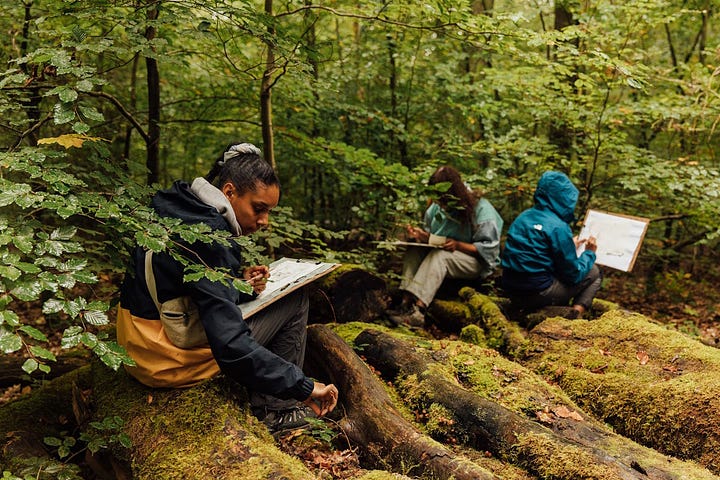
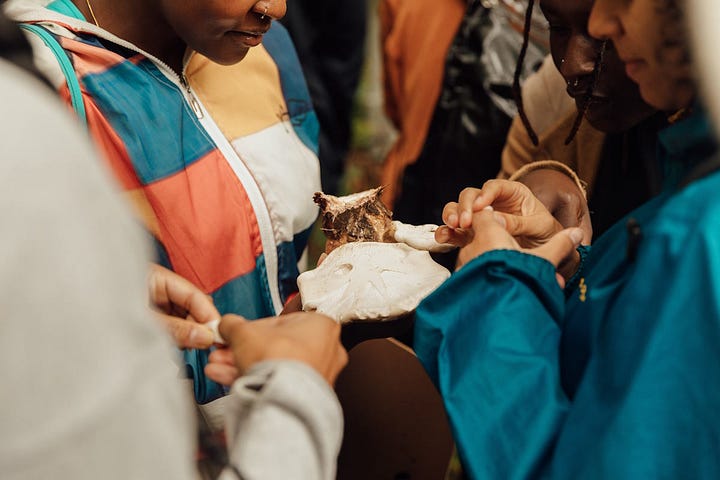
This episode challenges some deep-set assumptions around where ecological knowledge comes from and whose knowledge matters. Maymana explains how fungi are teachers and – if we pay attention – can show us different ways of being in relationship with our ecosystems and ourselves.
In the discussion, we cover topics around the colonial history of botany and nature-based art, what ‘queering’ ecology means, and how fungi help bring community and healing.
Links
Some of the books, articles and initiatives mentioned in this episode are linked below. If you are viewing this episode on some podcast players, some links may not work: visit the original post on the Future Natures website. For full audio and show notes from this and all past episodes, visit futurenatures.org/podcast
Maymana’s poem: Communion with a shaggy inkcap
MISERY (QTBPOC mental health collective)
‘Foragers’ (documentary on Palestinian foraging by Jumana Manna)
Further readings
The Palestine Heirloom Seed Library founded by Vivien Sansour
Mushroom growing in Gaza and occupied West Bank: articles from Jinha Agency and Al Jazeera
QUEER ECOLOGY
Queer ecologies (projects and resources)
BOTANY AND COLONIALISM
Books:
Shipping Roots, by Keg de Souza. Shipping Roots shares lesser-known stories of plants being moved over oceans and lands as elements of the colonial legacies of the British Empire. As someone with Goan heritage, the book draws on de Souza's experiences "as a person whose ancestral lands were colonised, and as a settler on the unceded lands of the Gadigal people."
Our Knowledge Is Not Primitive: Decolonizing Botanical Anishinaabe Teachings by Wendy Makoons Geniusz
Webinar talks:
Decolonizing Botany - Banu Subramaniam (author of Botany of Empire: Plant Worlds and the Scientific Legacies of Colonialism). More about the work of Banu Subramaniam is covered here.
Plants of Black Freedom - Leah Penniman (hosted by American Herbalists Guild)
Articles:
How Indigenous insight inspires sustainable science (English and Spanish versions): Quechua Amazonian evolutionary biologist Nataly Allasi Canales imagines what it would be like to grow up with the Matsigenka, living in the forest in the Amazon Basin and using the plants around her as food and medicine.
The theft and the colonization of Africa's indigenous knowledge by Anselm Adodo
ETHICAL MUSHROOM FORAGING
Ethical foraging, piece by Maymana Arefin in The Great Outdoors magazine

